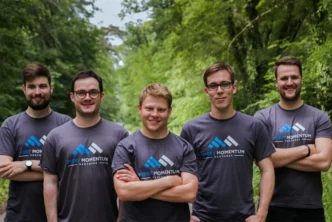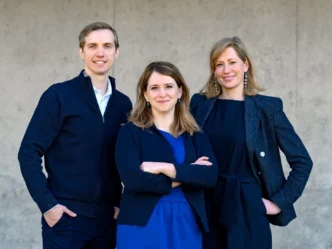Italy’s tech startup ecosystem has long battled a funding gap, especially in early stages. While Germany pulled in over €10 billion in venture capital in 2023, Italy secured just €1.1 billion. That disparity has made it difficult for promising startups to scale globally or even reach later funding rounds.
But now, Milan-based venture capital firm P101 SGR is setting out to rewrite the narrative.
With the final close of its new €250 million fund, Programma 103, P101 is taking a bold step toward reshaping Italy’s place in Europe’s tech future. Announced in 2024, this is not only the firm’s largest fund to date but also one of the biggest in Italian VC history. The fund’s early close at €150 million in late 2022 laid the foundation, and this full close marks a major leap forward for Italian innovation.
P101 is on a mission to fuel a new generation of globally ambitious startups. The firm isn’t just writing checks—it’s helping startups hire leaders, expand internationally, and meet the rising standards of digital transformation and sustainability.
Andrea Di Camillo, P101’s founder and managing partner, sees this fund as a powerful vote of confidence in Italian entrepreneurship. For him, the goal isn’t just investment returns. It’s about rewriting Italy’s economic playbook for the digital era.
A Decade of Strategic VC in Italy
Launched in 2013 by Di Camillo, P101 has steadily grown into one of Italy’s most influential VC firms. It focuses on early-stage digital and tech-driven companies across Europe, especially those in fintech, proptech, edtech, and cybersecurity.
P101’s investment model goes beyond capital. It acts as a hands-on partner, advising on operations, pricing strategy, and global expansion. In 2024 alone, its internal recruiting team placed 45 top-level executives in portfolio companies, cutting hiring time by nearly half.
Typical investments fall between €1 million and €10 million, with the firm taking minority stakes while offering deep strategic support. P101’s institutional backers include the European Investment Fund, Azimut, UniCredit, Banco BPM, CDP Venture Capital, and other major Italian players. CDP’s involvement, in particular, highlights the Italian government’s push to funnel National Recovery and Resilience Plan (PNRR) funds into digital innovation.
The new Programma 103 fund channels capital into early-stage startups with high-growth potential, prioritizing sustainability. One standout example is Cortilia, a grocery delivery company that slashed food waste by 30% using AI-based inventory management—an ESG win that underscores the firm’s forward-thinking approach.
Backing Bold Startups and Scaling Across Europe
Though deeply rooted in Italy, P101 is looking outward. Around 30% of Programma 103’s capital will go to startups in Spain and other European markets. The idea? Give Italian startups the tools—and peers—they need to compete across the continent.
So far, P101 has backed more than 50 startups and manages over €500 million across five funds. Portfolio companies include names like Multiply Labs, Citynews, Tannico, and the global music data platform MusixMatch, which was acquired by TPG for $500 million in 2023. Another success story is CyberGuru, which helped reduce fraud among regional banks in Italy by 22%.
To support growth at scale, P101 also provides technical and operational resources. These include shared DevOps support to reduce cloud costs and an ESG framework developed with Politecnico di Milano. What’s more, a dual fund structure allows retail investors to join via Azimut’s platform—broadening access to Italy’s emerging innovation economy.
Looking Ahead: Impact, Jobs, and Billions in Value
By 2030, P101 expects Programma 103 to help create over 3,000 skilled tech jobs, with a strong focus on gender diversity. The goal? Generate more than €5 billion in combined portfolio revenue—twice as much as previous funds—and attract another €1.5 billion in follow-on capital from international investors.
If P101 succeeds, it won’t just fund startups—it will help write a new chapter for Italy’s role in Europe’s digital economy.













